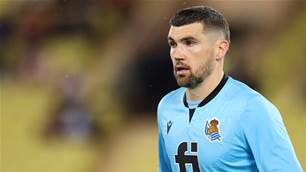Michel Platini is now the president of UEFA but 25 years ago, on May 29, 1985, he was just one of the 22 players on the pitch at Heysel Stadium when one of the worst disasters in football unfolded in front of his eyes.
The tragedy left 39 Belgian and Italian fans dead after a wall collapsed as Liverpool fans tried to attack Juventus supporters in the stadium in Brussels.
"Something inside me died," was Platini's instant reaction when he was asked how it felt being told to keep playing after such an appalling event - it was his penalty that finally won the match for Juventus.
Platini has always been reluctant to speak about the tragedy, but he did break his silence before the 20th anniversary to explain his feelings.
He said then: "I didn't play football to see 39 people dead in the stadium - this is not my philosophy of football.
"At the beginning we heard there was a problem in the stadium and we knew one or two people had died.
"My father, who was in the stadium, also didn't know what happened. He found out what had happened the day after when he heard the news on the radio. All the people watching on TV knew more than the people in the stadium.
"Our president asked us to play the game. I think it was very important to play. If we hadn't played it would have been worse. I am sure it would have been worse - if the people in the stadium, the Italians, had known there were so many dead, they would have sought revenge. It was better that we played.
"It was very difficult when I got back to Turin, it was a difficult period and I returned two days after to the hospital in Brussels to visit Italian people there."
In England, Heysel made the country into the pariah of Europe. English clubs were banned from European competition for five years, with Liverpool given an extra year's ban, as the world decided they had had enough of the hooliganism that had accompanied English football for a decade and a half.
The British Government started a process of bringing in new laws to try to prevent troublemakers from attending matches with legislation introduced in 1986, and then the Football (Offences) Act in 1991.
The Hillsborough disaster in 1989 was the real turning point for the game, despite the warnings of Heysel and the Bradford fire in the same year.
The main reforms to stadiums in England did not come until after the Taylor Report following Hillsborough, while the toughest legislation against hooligans did not emerge until after trouble at Euro 2000, also in Belgium and Holland.
After Heysel, UEFA suddenly found itself under intense scrutiny too, despite the-then UEFA president Jacques Georges trying to deflect all blame by describing the Liverpool fans as "savages".
Indeed UEFA general secretary Hans Bangerter, who had held the post since 1960, found himself given a three-month suspended sentence by a Belgian court for negligence leading to involuntary manslaughter, and both he and Georges were forced out of their jobs.
For the new leadership of UEFA, there was stark realisation that they too had to take responsibility for ensuring that stadiums were safe and that the police were organised and reliable.
The legacy of Heysel was a sea change in attitudes towards the staging of major football matches across the continent.
The legacy too is that Platini's experience of that sad night means UEFA have a man at the helm who will never be complacent about fans' safety.
Related Articles

Socceroos Abroad: European Play-off Round Draw Results

Late change puts 5 Matildas in Champions League quarterfinals













